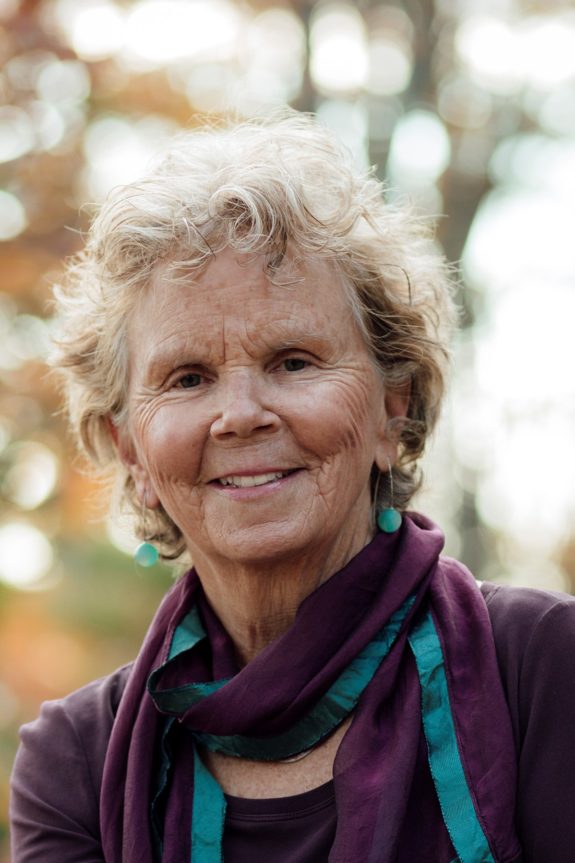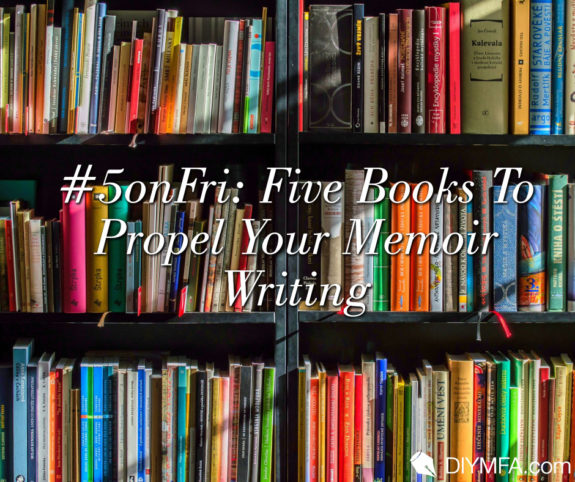Writing a memoir is not easy. Like any genre, we need a compelling narrative arc driven by good scenes full of sensory details and great dialog. But we also need to create meaning from experience and offer takeaways for our readers. We need to claim our own emotional truth.
Negative critics jabber away in our heads, often with real concerns for the people we write about. I was disclosing a deeply held personal secret that I thought for years might ruin my father’s reputation. Memoirists have all this personal and emotional stuff to process and for most of us, that takes time.
My debut memoir, Poetic License—about my relationship with my Pulitzer-Prize winning father, Richard Eberhart—will be published on August 4th by She Writes Press. It will have taken nearly twenty years. Many times, I threatened to put it down for good. Instead, I’d browse a bookstore (back when we could) to find a writing guide to inspire me. Here are the five that got me through.
Bird by Bird by Anne LaMott
Published in 1994, I picked it up in 2000 just as I was beginning to jot down snippets of memory about living in the literary swirl of my father. I’d grown up believing my family’s myths that we were special and that the accolades heaped on my parents made ours an idyllic family. When I began to express my own lived experience on the page, sometimes in opposition to that public view, my inner critics got loud.
That is until I read LaMott’s line, “a critic is someone who comes onto the battlefield after the battle is over and shoots the wounded.” With that, I told my inner critics to leave my battlefield alone. When they persisted, I turned to LaMott’s seminal line, “You own what happened to you… If people wanted you to describe them more warmly, they should have behaved better.” Bird by Bird became my first Bible.
Still Writing—The Perils and Pleasures of a Creative Life by Dani Shapiro
Around the time I picked up Shapiro’s book in 2013, I was really stuck and at a loss for what to do next with my memoir. Twenty-plus rejections from good editors and publishers, each starting with “beautiful writing and a compelling story” and ending in short shrift with “but [fill in the blanks].” Maybe they were right. Their reasons chiseled away at my faith.
I opened Shapiro’s book to a quote from David Salle, speaking of his writing process: “I have to get lost so I can invent some way out.” Ah, I thought, I’ve been lost before. I just have to invent my way out. Shapiro provided a path. “There is no magical place of arrival. There is only the solitary self facing the page. Stay there, if you can,” she continued. “Don’t resist. Don’t force it, but don’t run away.” Running away had never been my MO in life. I would not let it take over now.
The Art of Memoir by Mary Karr
Published in 2015, Karr lays out the great difficulty of writing a memoir with her observation that “everybody I know who wades deep into memory’s waters drowns a little.” Where as writing fiction might leave you a little buoyant at the end of your writing day, Karr says memoir leaves you drained and exhausted. She laid out ten excellent reasons to quit before pulling me back from the edge. “To tap into your deepest talent, you need to seek out a calm, restful stage of mind where your head isn’t defending your delicate ego and your heart can bloom open a little.” If I ignored my bruised ego, maybe I could bloom enough to wrap it up. Still, I wasn’t sure I’d really nailed my voice.
Good Naked—Reflections on How to Write More, Write Better & Be Happier by Joni B. Cole
In 2017, this slim volume by the woman who founded our local writer’s center summed up everything I needed to keep going. Cole’s crisp, smart, and soothing essays were a balm. Her emphasis on providing positive feedback was refreshing after feeling beaten up by rejections. “Most writers,” Cole summarizes from long experience, “seem to do better when we are cheered on along the way, particularly because most of us are lousy at doing this for ourselves.” She was speaking directly to me. Her essays pushed me onward as if she had a kind hand in the middle of my back.
That same year I was invited to submit a twelve hundred-word essay capturing my full life story to be read in front of a live audience. The short deadline, the need to capture a full-length book in a brief essay, and the pressure of going public with my story, coalesced into what I could finally claim as my truest voice. I was elated after the reading and knew immediately that I’d need to re-write the whole book in that newly found voice. I pinned Cole’s statement, “I wish I knew what to do when writers fail to finish the worthy works they have started,” behind my laptop and kept it there until I was done.
Writing Hard Stories—Celebrated Memoirists Who Shaped Art from Trauma by Melanie Brooks
Also published in 2017, I didn’t find this wonderful book until I’d begun the final year of manuscript overhaul with my editor, in 2019. I had the main plot points, but some scenes were out of order and I’d not yet cemented the start or end of the book. Melanie’s conversations with memoirists while getting her MFA and considering her own possible memoir allowed me to sharpen my voice and cross the finish line.
As if alongside Brooks, I sat with Andre Dubus III at a college office in New Hampshire; met with Kyoko Mori at her home in Washington, DC; listened to Brooks cell-phone call to Abigail Thomas from her car; and split a molten lava cake with Monica Wood in Shay’s Pub in Portland, Maine. Each memoirist invited me into their world as if they had endless time, as I reorganized scenes and found my beginning and end. When a beta reader said she saw herself in my book, I heard Wood encouraging me, “take that as a compliment.” After twenty years, I’d fashioned a coherent story and found my own triumphant voice.
These five books appeared just when I needed them. I could open any one of them, read a paragraph, and be inspired to master mine. Solo in my writing room, I felt the community of generous authors around me through two decades of family, career, the deaths of my parents, retirement, and writing my first book. May you find like inspiration as you complete your own worthy book.

Gretchen Eberhart Cherington is the author of Poetic License: A Memoir (She Writes Press). In the vein of Small Fry by Lisa Brennan Jobs and Famous Father Girl by Jamie Bernstein, Poetic License explores the life of a Pulitzer prize-winning poet’s daughter: how she confronts her family’s myths and her beloved father’s betrayals while finding her voice and establishing her own legacy. It’s an extremely engaging account of growing up in an academic family that had a constant stream of famous poets and writers through their door, and the winding journey to understanding how her own father’s early childhood trauma plays out over generations.
Cherington grew up in a household that—thanks to her Pulitzer Prize-winning father, the poet Richard Eberhart—was populated by many of the most revered poets and writers of the twentieth century, from Robert Frost to James Dickey. She’s spent her adult life advising top executives in changing their companies and themselves. Her essays have been published in Crack The Spine, Bloodroot Literary Magazine, and Yankee Magazine, among other journals and newspapers, and her essay “Maine Roustabout” was nominated for a 2012 Pushcart Prize. Cherington is a leader in her community and has served on twenty boards. Passionate about her family and friends, she most enjoys spending time with them at home or in wild places around the world. Learn more at https://www.gretchencherington.com.







